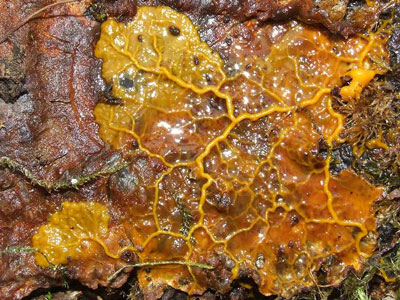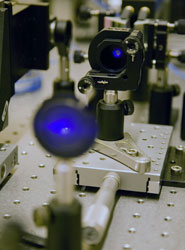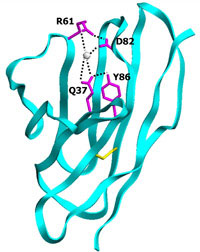Researchers isolated bacteria with large numbers of tiny projections called pili which were more efficient at transferring electrons to generate power in fuel cells than bacteria with a smooth surface.
Sep 7th, 2009
Read more
The Fellows will be honored at the Awards Ceremony during the Biophysical Society's 54th Annual Meeting on Monday February 22, 2010 at the Moscone Convention Center in San Francisco.
Sep 6th, 2009
Read more
The eight recipients will receive their awards at the Society's 54th Annual Meeting on Monday, February 22, 2010 at the Moscone Convention and Exhibitions Center in San Francisco.
Sep 6th, 2009
Read more
The University of Arkansas Board of Trustees Friday approved a $34 million bond issue for UALR that will generate $31.6 million for capital projects over the next three years, including a $9 million nanotechnology center.
Sep 5th, 2009
Read more
The 2010 Kavli Prize call for nominations has been opened by the Norwegian Academy of Science and Letters. The Academy will receive nominations through December 15, 2009.
Sep 5th, 2009
Read more
 Scientists at the University of the West of England are to design the first ever biological robot using mold.
Scientists at the University of the West of England are to design the first ever biological robot using mold.
Sep 5th, 2009
Read more
Funded by the National Science Foundation through the Center for Hierarchical Manufacturing at the University of Massachusetts Amherst, the goals of the NNN are to build a network of experts and organizations that facilitates the transition of nanotechnologies from core laboratory research to production manufacturing and to foster technology transfer and information exchange between all community stakeholders.
Sep 4th, 2009
Read more
The newly formed American Society for Nanomedicine (ASNM) is holding its inaugural conference on October 22-25, 2009 in the Washington D.C.
Sep 4th, 2009
Read more
As we begin to see early signals of economic recovery in Europe, Nanotech Europe (September 28-30, 2009 in Berlin, Germany) looks at the role nanotechnology will play in future economic development.
Sep 4th, 2009
Read more
 A primitive quantum computer that uses single particles of light (photons) whizzing through a silicon chip has performed its first mathematical calculation. This is the first time a calculation has been performed on a photonic chip and it is major step forward in the quest to realise a super-powerful quantum computer.
A primitive quantum computer that uses single particles of light (photons) whizzing through a silicon chip has performed its first mathematical calculation. This is the first time a calculation has been performed on a photonic chip and it is major step forward in the quest to realise a super-powerful quantum computer.
Sep 4th, 2009
Read more
 Researchers for the first time observed magnetic monopoles and how they emerge in a real material.
Researchers for the first time observed magnetic monopoles and how they emerge in a real material.
Sep 3rd, 2009
Read more
How safe are nanoparticles? Amanda Barnard, at the Commonwealth Scientific and Industrial Research Organisation, Clayton, Australia, reveals how computation can help to identify and prevent nanohazards.
Sep 3rd, 2009
Read more
A partnership announced in June will allow a new nanotechnology company in the area to use UW-Eau Claire facilities,including the Materials Science Center, for research and provide internships to science majors.
Sep 3rd, 2009
Read more
Conference to provide insight into NIST and NIH bio-imaging technologies available for licensing and/or collaboration.
Sep 3rd, 2009
Read more
Scientists in the National Institute of Biomedical Imaging and Bioengineering (NIBIB) Laboratory of Bioengineering and Physical Science have developed a new technique that allows researchers to visualize fine details of cell structure three-dimensionally in thick sections, thus providing greater insight into how cells are organized and how they function.
Sep 3rd, 2009
Read more
 Researchers at the U.S. Department of Energy's Argonne National Laboratory have developed a systematic method to improve the stability of antibodies. The technique could lead to better biosensors, disease therapeutics and diagnostic reagents and non-laboratory applications, including environmental remediation.
Researchers at the U.S. Department of Energy's Argonne National Laboratory have developed a systematic method to improve the stability of antibodies. The technique could lead to better biosensors, disease therapeutics and diagnostic reagents and non-laboratory applications, including environmental remediation.
Sep 3rd, 2009
Read more





 Subscribe to our Nanotechnology News feed
Subscribe to our Nanotechnology News feed